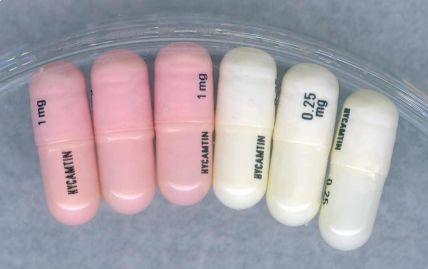Researchers at the School of Dentistry at the University of Southern California have discovered the health benefits of the drug aspirin in the fight against osteoporosis (calcium leakage or bone loss). About forty-four million Americans, nearly seventy percent of whom are women, suffer from the debilitating effects of this disease, according to the National Institutes of Health (NIH). Every second woman and every fourth man over the age of 50 will suffer a crisis caused by this disease during their lifetime

This updated study reveals the medical role of aspirin on two levels. In mice, the drug appears to prevent both the defective resorption of bone and the death of bone-producing stem cells.
Aspirin treatment helps mice recover from the disease in two effective ways, while identifying a balance between bone production and calcium reabsorption, according to Professor Songtao Shi and his research colleague Takayoshi Yamaza from the university's School of Dentistry.
This silent disease affects both women and men. In women, calcium loss is highest in the first years after menopause (stopping the menstrual cycle). The disease breaks out when reabsorption of bone (bone loss) occurs too quickly or when production (replacement of calcium) occurs too slowly. According to Shi, the removal of the ovaries and the resulting reduction in estrogen concentration precipitates osteoporosis in mice, very similar to the onset of the disease in postmenopausal women. It is estimated that T lymphocytes, a type of cells in the immune system, take a decisive part in this process by over-activating osteoclasts (cells that break down bone tissue, osteoclasts), which are the bone cells that reabsorb the bone components from the skeleton. Most of the current treatment methods for the disease focus on restraining these over-activated cells.
However, there is probably another side to these lymphocyte cells in the disease, says Yamaza. While the cells of the immune system often attack "sick" cells or foreign components to the body, in some cases these cells can mistakenly attack healthy stem cells as well. "After the introduction of T-cells into the mice, these cells weakened the function of the mesenchymal stem cells (a collection of cells that develop into connective tissues, blood vessels, etc.) of the bone marrow and led to an increase in the number of osteoclasts," says the researcher.
Bone marrow mesenchymal stem cells (BMMSC for short) differentiate to receive many types of cells, including osteoblasts, the type of cells responsible for bone formation. If this process is disrupted by the heti-cells, the rate of bone formation does not catch up with the rate of reabsorption of the bone by the osteoclasts, and the mineral density of the bone is reduced - the main characteristic of osteoporosis leading to structural deterioration of the skeleton and increased fragility.
The use of aspirin has been linked in earlier epidemiological studies to an improvement in bone density, but the mechanisms responsible for its effect on bone health have not yet been widely examined, says the researcher. "We showed how aspirin both inhibits bone resorption and accelerates the creation of osteoblast cells," claims the researcher.
Another fascinating aspect of the use of aspirin lies in the fact that the dose given to mice to increase bone density is the same as the normal dose given to humans in relation to the weight differences between them, he adds. Although the difference between strains is still an influencing factor, the initial results are promising. "When we gave a large amount of aspirin to mice through injections it didn't work," says the researcher, "but when we gave a low dose in the mice's drinking water over a long period of time, similar to the dose in humans, bone density increased."
The researchers hope that their work will soon be translated into new medical treatment methods for the disease. "We opened a door," says the researcher. "We hope that other scientists will be able to confirm our findings and further advance the treatment of this disease."
The use of aspirin provides hope for patients and doctors looking for practical alternatives to the current use of bisphosphonates as a means of preventing and treating osteoporosis. This recent study promotes the possibility that one day aspirin will not only protect against heart disease but also against other bone and skeletal diseases.
